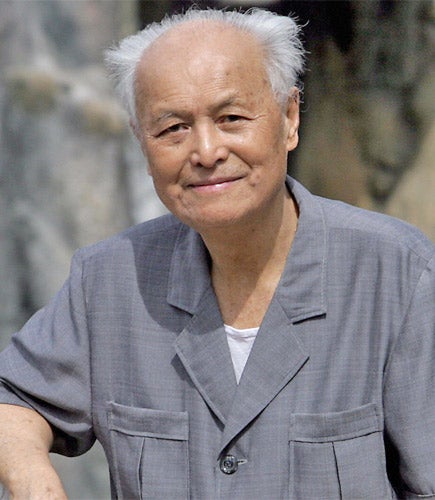Communist Party elders call for free speech in China

Your support helps us to tell the story
From reproductive rights to climate change to Big Tech, The Independent is on the ground when the story is developing. Whether it's investigating the financials of Elon Musk's pro-Trump PAC or producing our latest documentary, 'The A Word', which shines a light on the American women fighting for reproductive rights, we know how important it is to parse out the facts from the messaging.
At such a critical moment in US history, we need reporters on the ground. Your donation allows us to keep sending journalists to speak to both sides of the story.
The Independent is trusted by Americans across the entire political spectrum. And unlike many other quality news outlets, we choose not to lock Americans out of our reporting and analysis with paywalls. We believe quality journalism should be available to everyone, paid for by those who can afford it.
Your support makes all the difference.A group of eminent Chinese Communist Party elders has issued a bold call to end the country's wide-ranging restrictions on free speech, just days after the government reacted angrily to the awarding of the Nobel Peace Prize to the imprisoned dissident Liu Xiaobo.
In an open letter posted online, the retired officials state that although China's 1982 constitution guarantees freedom of speech, the right is constrained by a host of laws and regulations that should be scrapped.
"This kind of false democracy of affirming in principle and denying in actuality is a scandal in the history of democracy," said the letter, which was dated Monday and widely distributed by e-mail.
Wang Yongcheng, a retired professor at Shanghai's Jiaotong University who signed the letter, said it had been inspired by the recent arrest of a journalist who wrote about corruption in the resettlement of farmers for a dam project.
"We want to spur action toward governing the country according to law," Mr Wang said in a telephone interview. "If the constitution is violated, the government will lack legitimacy. The people must assert and exercise their legitimate rights."
Coming on top of Mr Liu's Nobel Prize, the letter further spotlights China's tight restrictions on freedom of speech and other civil rights, although Mr Wang said the two events were not directly related. Work on the letter began several days before the prize was awarded, and drafters decided against a reference to Mr Liu out of concern that the government would block its circulation.
The letter called on the National People's Congress, China's legislature, to scrap restrictions on publications and implement a system of post-facto review, as many other nations did long ago. "Our current system of censoring news and publications is 315 years behind Britain and 129 years behind France," the letter said. It described the shadowy Central Propaganda Department as an "invisible black hand" and questioned its right to override both the government and the premier.
The 23 signatories include Li Rui, the former secretary to revolutionary leader Mao Zedong, and other retired high officials in state media and the propaganda apparatus who were once themselves responsible for enforcing strict censorship.
Join our commenting forum
Join thought-provoking conversations, follow other Independent readers and see their replies
Comments